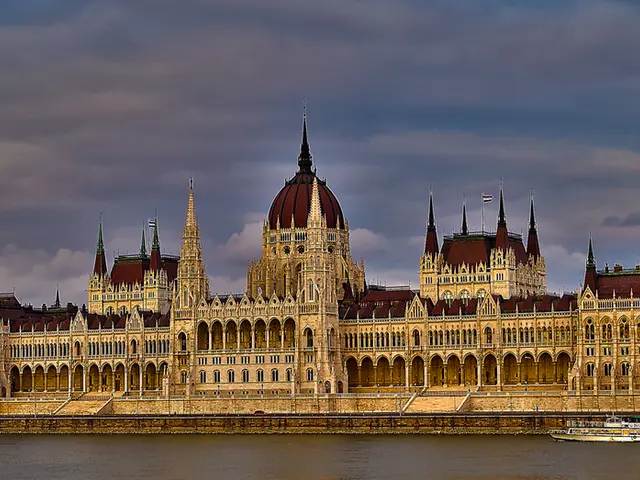Political Parties Briefed by ISPR DG; President Summons Special Parliament Session in Response to Crisis in Pakistan
Title: The Intense Bickering Between India and Pakistan: A Post-Pahalgam Tension Analysis
In a whirlwind of high-stakes diplomacy and military preparations, tensions between India and Pakistan continue to escalate following the Pahalgam terror attack.
Sleepless Nights in Pakistan
Despite numerous high-profile meetings underway in India, Pakistan finds itself in a state of distress, nervously anticipating potential Indian retaliation. Last Sunday, the Director General of Inter-Services Public Relations (ISPR), Lt. General Ahmed Sharif Chaudhry, along with Federal Information Minister Attaullah Tarar, convened a closed-door meeting with political party representatives in Islamabad. The discussion centered around the Pahalgam terror attack, with the DG ISPR providing updates on the army's readiness status to the attendees [1]. Meanwhile, Pakistani President Asif Ali Zardari has called for an emergency session of the National Assembly to debate the mounting regional tension [1].
A United Nations Shadowboxing
Pakistan's diplomatic mission in New York has sought a closed-door United Nations Security Council (UNSC) meeting today to discuss the Kashmir situation [1]. This request comes after India recently reprimanded Pakistan at the UNSC for its baseless claims in relation to Kashmir [1]. In the -stormy- UNSC meeting, India provided evidence linking Pakistan to the Pahalgam terror attack, revealing that one of the terrorists was a former Para-commando of the Pakistani Army [4]).
Against All Odds, Pakistan Tests Its Strength
Amidst the boiling situation, Pakistan marked April 29 with a test of an enhanced version of its nuclear-capable Abdali missile, succeeding in extending its range to a staggering 450 kilometers [5]. This test comes in the face of mounting conflicts between the two countries.
The Pahalgam Brutality
The brutal April 22 Pahalgam terror attack in Jammu and Kashmir, the bloodiest since the year 2000, left 26 innocent people dead at the hands of terrorists [4]. With strong proof linking Pakistan to the attack, India has faced a wave of condemnation internationally, yet the escalating hostilities show no signs of abating.
The International Stage Shuffles
Both the United States and China have called for de-escalation in the region, with China advocating for an impartial investigation into the attack [1]. Despite diplomatic efforts to keep the tension at bay, the intense deadlock persists.
A Tale of Two Nations
As both nations nurse their wounds and prepare for a potential showdown, political gatherings within the governments continue in an attempt to lay out diplomatic strategies and address national security concerns. With no signs of a peaceful resolution, the world watches anxiously as the tension unfolds.
Sources:[1] Khalid, R. (2022, April 30). Pakistan to seek UNSC closed doors meeting on Kashmir situation. Dawn. [2] Wallensteen, P., Sivakumar, B., Tarricone, S., & Boutros, N. (2022). Armed conflicts and peace agreements. International Peace Research Institute (SIPRI). [3] United Nations Military Observer Group in India and Pakistan (UNMOGIP). (n.d.). Situation on the Line of Control in Kashmir. [4] Tiwari, A. (2022, April 29). India claims Pakistan Army's ex-Para commando carried out Pahalgam terror attack. NDTV. [5] China, Russia back Pakistan's nuclear-capable missile test after India slams it. The Times of India.
- The Director General of Inter-Services Public Relations (ISPR) in Pakistan, Lt. General Ahmed Sharif Chaudhry, along with Federal Information Minister Attaullah Tarar, briefed political party representatives in Islamabad about the Pahalgam terror attack, updating them on the army's readiness status.
- In an attempt to address the rising tensions between India and Pakistan, Pakistan's diplomatic mission in New York called for a closed-door meeting at the United Nations Security Council (UNSC), to discuss the Kashmir situation.
- Despite international calls for de-escalation, Pakistan continued its military readiness by testing an enhanced version of its nuclear-capable Abdali missile, which scored a successful 450 kilometer range.
- The brutal Pahalgam terror attack in Jammu and Kashmir, on April 22, left 26 innocent people dead at the hands of terrorists, causing an international wave of condemnation towards Pakistan.








